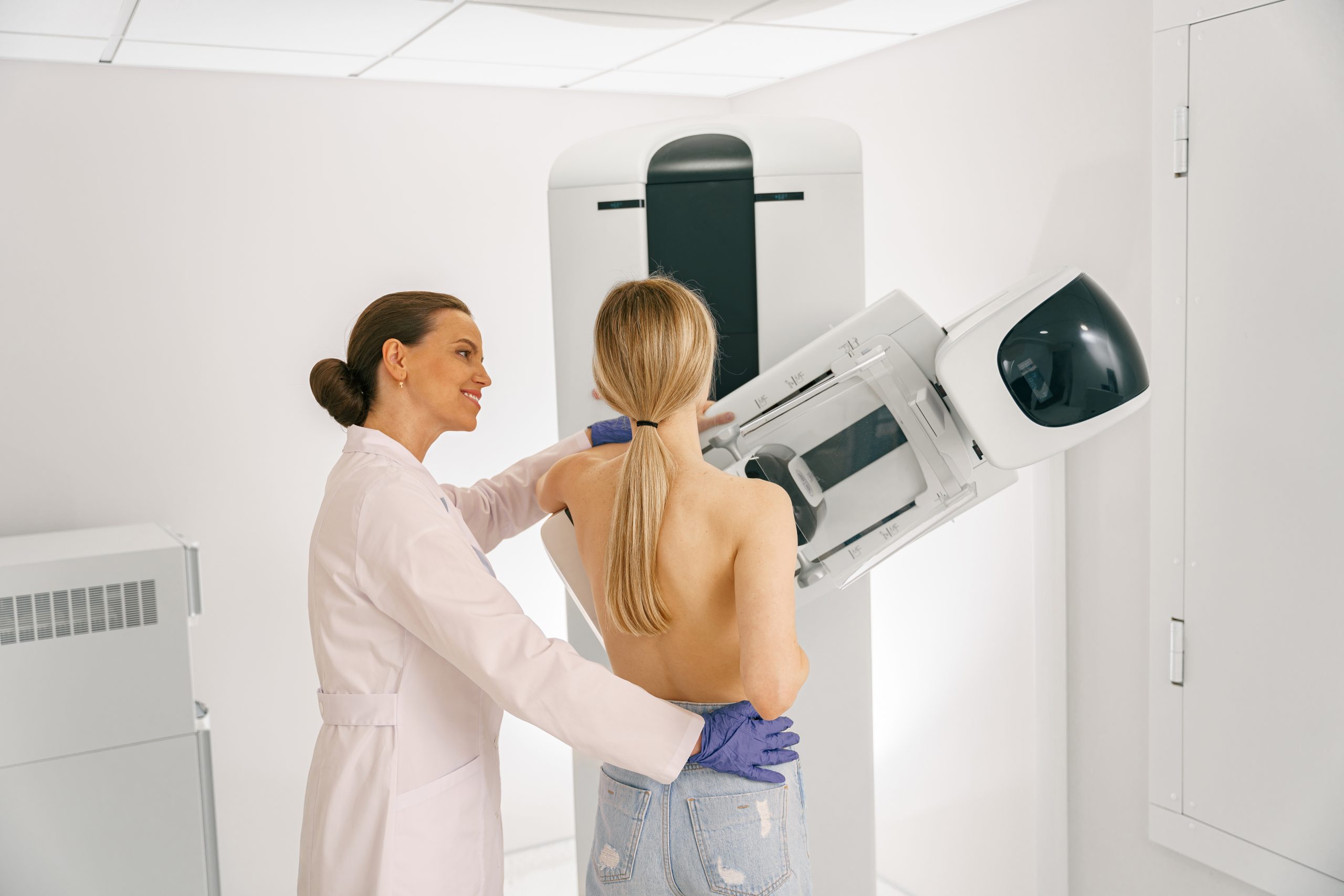Each week, OMRF Chief Medical Officer Dr. Judith James opens “Adam’s Journal” to answer a medical question from Adam Cohen, OMRF’s senior vice president & general counsel.
Adam’s Journal
Like many employers, the Oklahoma Medical Research Foundation teams with a mobile mammography service to offer onsite breast cancer screening services to our employees.
An employee in her 20s has inquired about using the service. Of course, she could. But should she?
Dr. James Prescribes
Recently, recommendations for when women should begin regular screening for breast cancer have changed. Where guidelines had suggested waiting until age 50, the U.S. Preventive Services Task Force now counsels that women should get a mammogram every year beginning at age 40.
Not coincidentally, it is typically starting at this age – 40 – that insurance companies will pay for the procedure as a routine preventive test.
Health experts do not recommend that women under 40 who are at average risk for breast cancer undergo mammograms. That generally means that women in their 20s and 30s are too young to begin screening unless they have: (1) a known genetic mutation (like BRCA1 or BRCA2) that puts them at high risk for breast cancer; (2) an extremely strong family history of breast cancer; or (3) physical symptoms of the disease, such as a mass or other breast changes.
Young women have a low risk for breast cancer. Mammography involves radiation exposure, so the risk-benefit calculus – especially when one considers lifetime radiation exposure, a risk factor for many cancers – does not make sense for normal-risk patients under the age of 40. However, that risk-benefit calculus changes once women reach the age of 40, as about 1 in 6 breast cancers are diagnosed in this age group.
Mammograms for young women also carry a higher level of false positives. This can mean unnecessary anxiety, additional testing, and costs.
It is important that women of any age understand if they are at higher risk for breast cancer. This involves learning your family history, which could in some circumstances lead to testing for certain genetic variants like BRCA1and BRCA2.
For young women, instead of mammography, doctors suggest performing self-breast exams regularly beginning at the age of 20. These self-exams can help women know how their breasts should feel, and they will help them notice any changes.
If they do detect a lump or any abnormality, that’s the time to talk to a healthcare provider and seek a breast examination.
–
James is executive vice president and chief medical officer of the Oklahoma Medical Research Foundation. Cohen, a marathoner, is OMRF’s senior vice president and general counsel. Send your health questions to contact@omrf.org.




